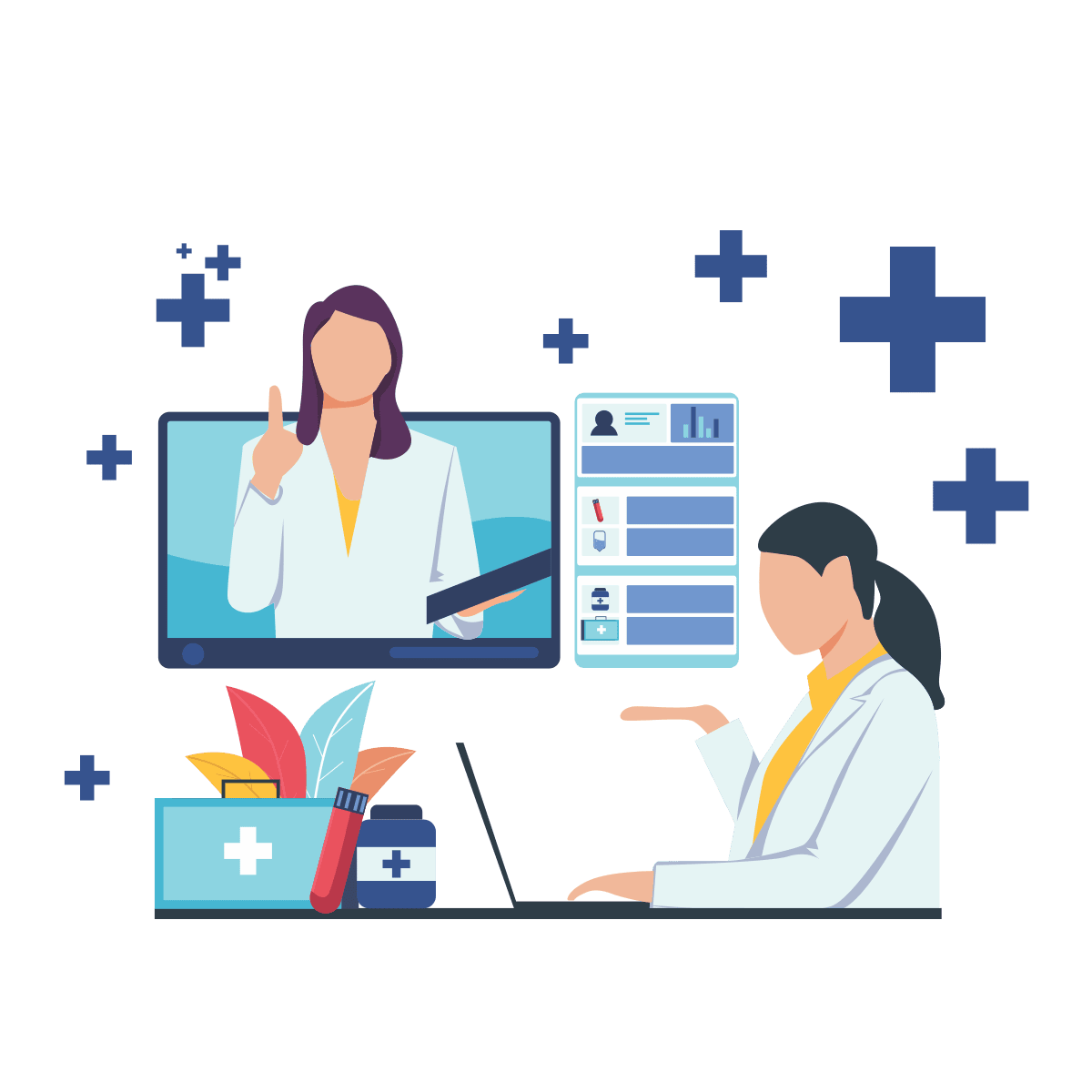Share your reports
Step 1
Upper Endoscopy, is also known as EGD (Esophagogastroduodenoscopy), is a medical procedure used to look inside your upper digestive system — including the esophagus, stomach and the first part of the small intestine (duodenum). Doctors use a thin, flexible tube with a camera called an endoscope to find out what’s causing symptoms like pain, nausea, difficulty swallowing or bleeding. It is a safe, commonly performed test that helps diagnose and sometimes treat issues in the upper GI tract.
To investigate chronic heartburn, indigestion, or acid reflux.
If you have trouble swallowing or feel food is getting stuck.
To check causes of unexplained nausea, vomiting, or abdominal pain.
For diagnosing ulcers, infections, or tumors.
To detect bleeding in the upper gastrointestinal (GI) tract.
To perform biopsies if any suspicious area is found.
To remove polyps, food blockages, or treat narrowed areas.
Offers clear visuals of the inner digestive system.
Quick and accurate diagnosis of many GI conditions.
Enables tissue sampling (biopsy) without major surgery.
Can be used for treatment — not just diagnosis for example stopping bleeding, removing growths.
Safer and less invasive than surgical procedures.
Provides answers when other tests (like X-rays or ultrasounds) are inconclusive.
Do not eat or drink for at least 6–8 hours before the procedure.
Inform your doctor about any medications, especially blood thinners or diabetes meds.
Tell your doctor if you have heart, lung, or bleeding disorders.
Arrange for someone to take you home after the test, as sedation may be used.
Avoid alcohol or smoking the day before the test.
The procedure is done in a hospital or clinic setting.
You may receive a mild sedative through an IV to help you relax.
A numbing spray may be applied to your throat to reduce discomfort.
The egd scope, a thin flexible tube with a camera, is gently inserted through your mouth.
The doctor guides the tube into your esophagus, stomach, and duodenum.
The entire process usually takes 15 to 30 minutes.
1. Before the Procedure:
You will be asked to fast and arrive early.
A consent form will be signed.
You may receive a sedative to stay relaxed.
2. During the Procedure:
You will lie on your side.
The doctor inserts the egd scope gently.
You may feel slight pressure or bloating, but no pain.
3. After the Procedure:
You will rest until the sedative wears off (about an hour).
You may have a sore throat or mild bloating.
Results are shared the same day or after biopsy reports.
Sore throat or bloating (temporary).
Rarely, bleeding, especially if a biopsy is taken.
Infection, though very rare.
Tear or perforation of the GI tract (extremely uncommon).
Mild reaction to the sedative.
Provides valuable insight into upper GI conditions.
Detects ulcers, tumors, infections, and inflammation.
Helps start early treatment plans or perform immediate treatment.
If biopsies are taken, results usually come in a few days.
Overall, it’s a highly successful and low-risk procedure.
Transparent - Professional - Hassle Free
Share your reports
Step 1
Get Medical Opinions
Step 2
Get support in pre-arrival arrangements
Step 3
Assistance in logistics & Accommodations
Step 4
Assistance throughout treatment
Step 5
Fly back and Follow up
Step 6
Regimen Healthcare is home to top doctors renowned for their expertise and experience.
Find a Doctor
Patient Stories
Regimen Healthcare is home to top doctors renowned for their expertise and experience.
Mr. Abdul Hakeem Hasani
Saudi Arabia
Expert Eye & Endocrine Care: Abdul Hakeem Hasani(Saudi Arabia) Recovery story in India.
Mr. Abdul Hakeem Hasan
Mr. Faisal Al Otaibi
Saudi Arabia
World-Class Eye Care: How India Transformed Mr. Faisal Al Otaibi ( Kingdom of Saudi Arabia) Vision. Mr. Faisal Al Otaibi from the Kingdom of Saudi ..
Mr. Ali Mohsen
Yemen
Successful Jaw Joint Replacement: Mr. Ali Mohsen’s Journey from Yemen to India After Unsuccessful Surgeries in Egypt and the USA. Mr. Ali Mohsen fr..
Mr. Saleh Marzook Al Qurashi
Saudi Arabia
Successful Knee Revision Surgery in India: Mr. Saleh Marzook Al Qurashi (Saudi Arabia) Journey. Mr. Saleh Marzook Al Qurashi from Saudi Arabia had ..
Mr. Abdulla Ayedh
Yemen
Advanced Weight Loss Treatment: Mr. Abdulla Ayedh’s Journey from Yemen to India. Mr. Abdulla Ayedh from Yemen had been struggling with excess weigh..
Mr. Saad Yahya Al Aslai
Saudi Arabia
From Saudi Arabia to India: Mr. Saad Yahya Al Aslai’s Successful Gastro Treatment Journey. Mr. Saad Yahya Al Aslai, from the Royal Embassy of Saudi..
Mr. Alrasheed Altayeb Mohammed
Sudan
Mr. Alrasheed Altayeb Mohammed (Sudan) Successful Dental Treatment in India. Mr. Alrasheed Altayeb Mohammed, a 35 year old Man from Sudan, was stru..
Ms. Mooza Mohammad
Oman
Successful Neurology Treatment in India for Ms. Mooza Mohammad from Oman. Ms. Mooza Mohammad, a 42-year-old Woman from Oman, faced serious neurolog..